''A Reuters investigation, based on interviews with people smugglers and more than two dozen survivors of boat voyages, reveals how some Thai naval security forces work systematically with smugglers to profit from the surge in fleeing Rohingya,'' the news agency reports.
In one interview, an unnamed smuggler alleges that a broker in Burma (Myanmar) ''typically sends a passenger list with a departure date to a counterpart in Thailand.
''Thai navy or militia commanders are then notified to intercept boats and sometimes guide them to pre-arranged spots.
''The Thai naval forces usually earn about 2000 baht per Rohingya for spotting a boat or turning a blind eye, said the smuggler, who works in the southern Thai region of Phang Nga [north of Phuket] and deals directly with the navy and police.
''Police receive 5000 baht per Rohingya, or about 500,000 baht for a boat of 100, the smuggler said.''
The Reuters report, compiled over weeks of research in several countries, is likely to bring more questions in Thailand, where Andaman coast villagers and Rohingya also say that renegade military officers take part in people smuggling.
The report makes the point that navy patrols do not always work with the smugglers. ''Some follow Thailand's official 'help on' policy, whereby Rohingya boats are supplied with fuel and provisions on condition they sail onward,'' the Reuters team writes.
The report continues: ''Anti-trafficking campaigners have produced mounting evidence of the widespread use of slave labor from countries such as Myanmar [Burma] on Thai fishing boats, which face an acute labor shortage.
''Fishing companies buy Rohingya men for between 10,000 baht and 20,000 baht, depending on age and strength, said the smuggler in Phang Nga.
''He recounted sales of Rohingya in the past year to Indonesian and Singapore fishing firms.
''This has made the industry a major source of US concern over Thailand's record on human trafficking.
''About 8 percent of Thai seafood exports go to supermarkets and restaurants in the US, the second biggest export market after Japan.
''The Thai government has said it is serious about tackling human trafficking, though no government minister has publicly acknowledged that slavery exists in the fishing industry.''
In the past when allegations of involvement by the Thai military in mistreatment of Rohingya or smuggling have been made, all requests for independent investigations or military investigations have been rejected.
The special Reuters report goes on to detail a visit to the Immigration centre in Phang Nga where at one point 269 Rohingya men and boys ''lived in cage-like cells that stank of sweat and urine . . . some used crutches because their muscles had atrophied.''
On a more recent visit, Phuketwan discovered that conditions had improved - although seven deaths have been recorded in another Immigration centre at Sadao, in Songkhla province.
About 2000 Rohingya men, women and children are being held in Thailand pending a government decision on their status and future.
Reuters adds: ''Dozens of Rohingya have escaped detention centers. [Most of the escaped have been by women and children from family shelters.]
''The Thai smuggler said some immigration officials will free Rohingya for a price. Thailand's Foreign Ministry denied immigration officials take payments from smugglers.''
The report adds that according to the advocacy group the Arakan Project, at least 800 people, mostly Rohingya, have died at sea in the past year, mostly fleeing ethnic cleansing or repression in Burma.

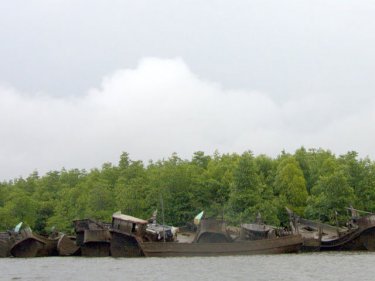









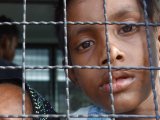
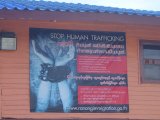






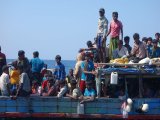


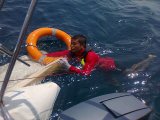
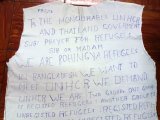
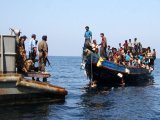

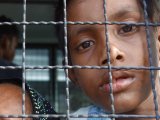

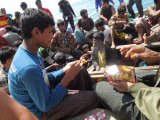



"Thailand's Foreign Ministry denied immigration officials take payments from smugglers." Well there you go, it doesn't happen, or is it time for an HONEST, informed and diligent Thai Foreign Minister
Posted by Phuket_IOC on July 17, 2013 13:32